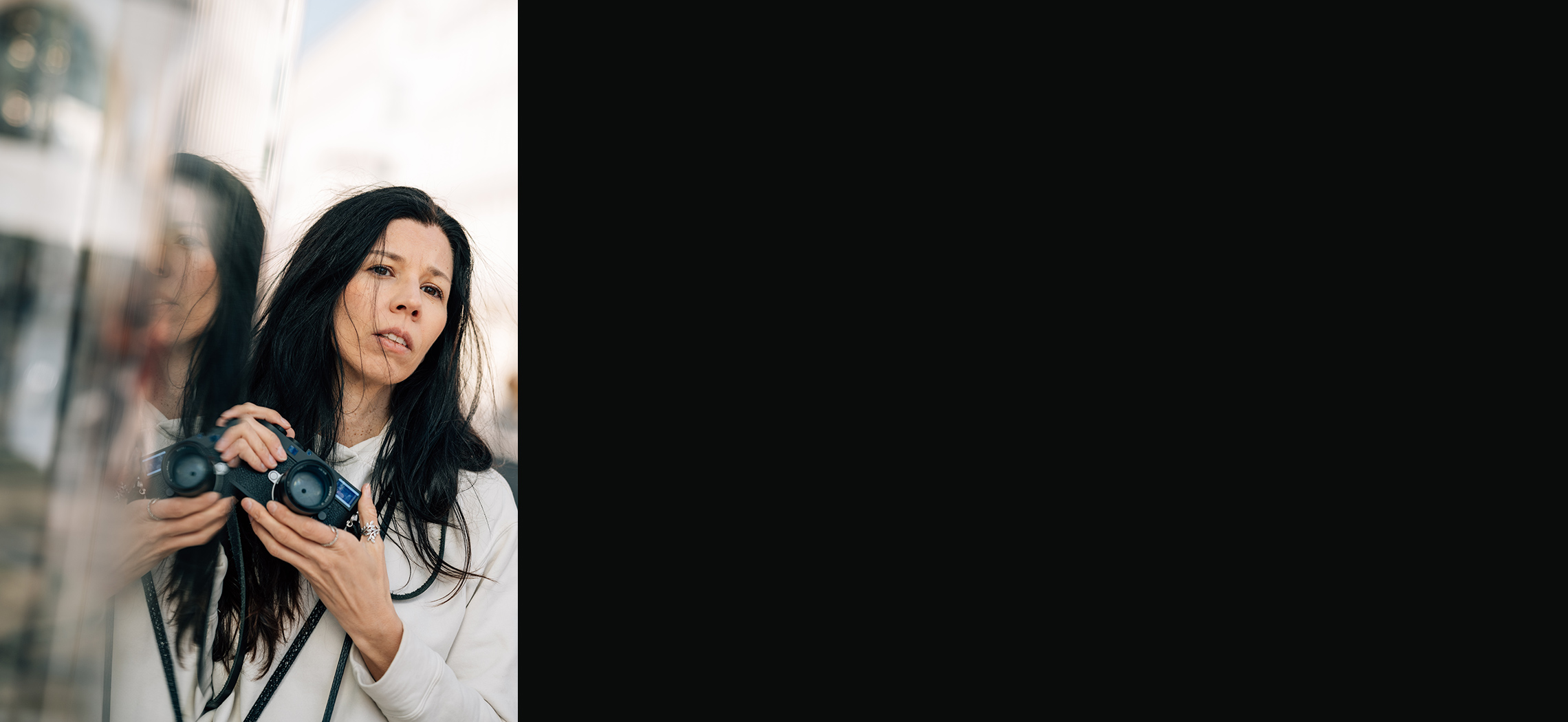A portrait of director Franziska Stünkel
Franziska Stünkel © China HopsonThere was a time when Franziska Stünkel didn’t ever want to go to the cinema again. As a four-year-old, she got so carried away by the adventures of the mouse detectives BERNARD AND BIANCA that her parents had to take her weeping from the cinema. About seven years later, thanks to AMADEUS, she discovered the positive force of cinema. But strictly speaking, her great empathy for the suffering of the two Disney heroes still shapes the 48-year-old director’s storytelling even today. She has a saying along those lines: “Cinema has immense capacity to create empathy.” She demonstrated this in an exemplary way with THE LAST EXECUTION, which received the renowned Förderpreis Deutsches Kino for the best screenplay as well as the One Future Award at Munich Film Festival in 2021. Inspired by the fate of Werner Teske, the last victim of execution in the GDR, this political drama tells the tragic story of a young scientist (Lars Eidinger) who becomes entangled in the machinations of the East German intelligence service. “I wanted to develop the greatest possible closeness to this individual, and derive insights from that empathy to take us a step further.”
By empathising with the sensitivities of an individual protagonist and “looking through his eyes and experiences”, the viewers themselves can arrive at a “wise, considered capacity for action”. This philosophy was reflected already in Stünkel’s first feature-length film VINETA from 2006 – based on a play by Moritz Rinke –, which delves into the emotional world of a workaholic. These specific individual fates also have universal relevance. This is evident not least in the worldwide reactions at international film festivals. Following the presentations of THE LAST EXECUTION in Chicago, Istanbul and Sidney, the filmmaker had some intense conversations with her viewers: “In some cases, 20 minutes were planned but they turned into two hours.”
The fact that her stories develop such leverage is also the result of a sophisticated aesthetic. In addition to her fascination with moving images, she also discovered photography in her youth. For years, she used her family’s bathroom as a darkroom. Parallel to her training in screenwriting and film directing, she studied photography as well. “Both have equal relevance”. For twelve years, she has been travelling the world with her Leica camera to capture natural reflections on shop windows for her highly acclaimed and award-winning series COEXIST, now the basis of an illustrated book. Her work is founded equally on interest in the universal connections of the ‘human condition’: “We cannot behave as if our actions have no impact on others because we are part of a world community facing major global challenges.”
Her visual understanding informs her approach as a director, although she has no desire to create self-serving ‘eye candy’: “When you take up a person’s story, you try to find the images that will tell it exactly, and step away from visual vanities.” In order to align the viewer‘s perception “strictly and clearly” with that of the protagonist in THE LAST EXECUTION, she dispensed with orientation- giving ‘establishing shots’, for example, and her cinematographer Nikolai von Graevenitz filmed with a gimbal camera that made it possible to follow the main character’s movements continually. The shooting took place mainly at the original locations “to allow their impact on us”. The takes concentrated on selected shots, often filmed in one go. Instead of music, there is always the sound of breathing because it reveals “so many emotional states”. She needed to justify her occasionally radical ideas to some of those involved: “When I am sure of a decision, I make my reasons transparent and will also fight for it. But I‘m never about progressiveness for progressiveness’ sake.”
Franziska Stünkel is currently working on new material. At the same time, her success with THE LAST EXECUTION brought several new project offers, which she is considering “very carefully”. “Because filmmaking calls for incredible dedication”. The research for and development of THE LAST EXECUTION, for example, took eight years.
She definitely has enough ideas as she continues to reflect deeply on life’s vital questions: “Through writing, directing and photographing, I have become even more aware of the tension between wanting to trust and remaining vigilant. Finding the right route along this tightrope walk is challenging and wonderful at the same time. There will never be a final answer. That’s why I will spend the rest of my life in the process.“
Rüdiger Sturm

